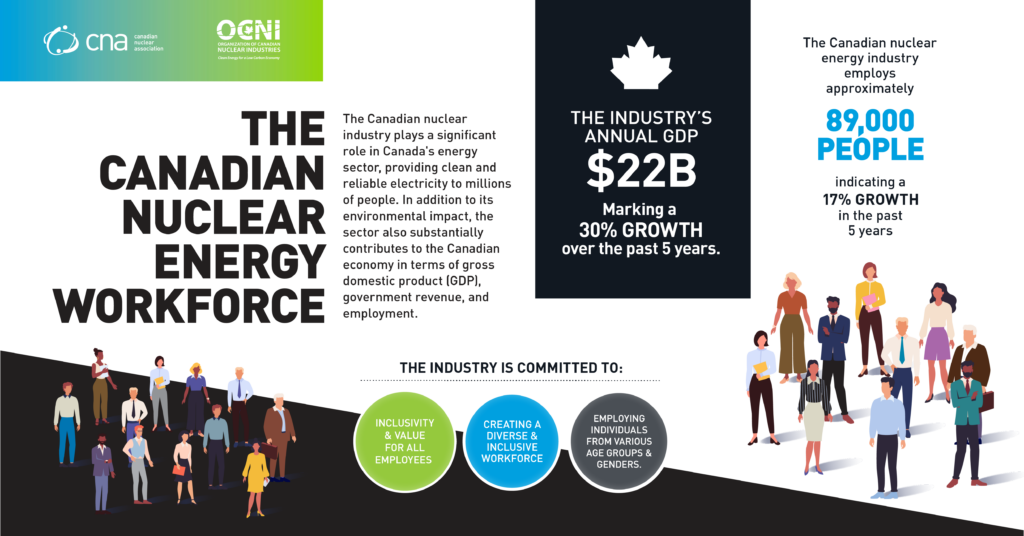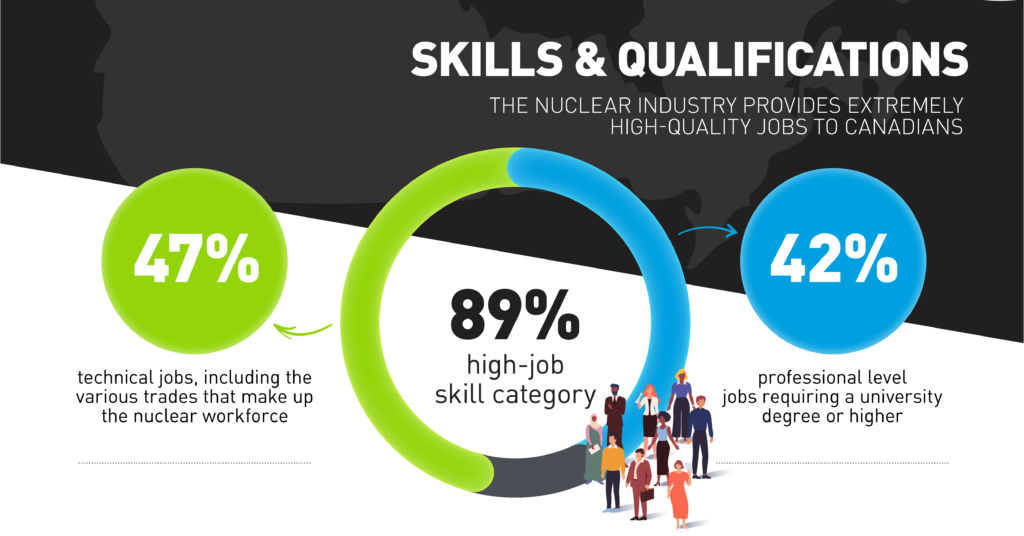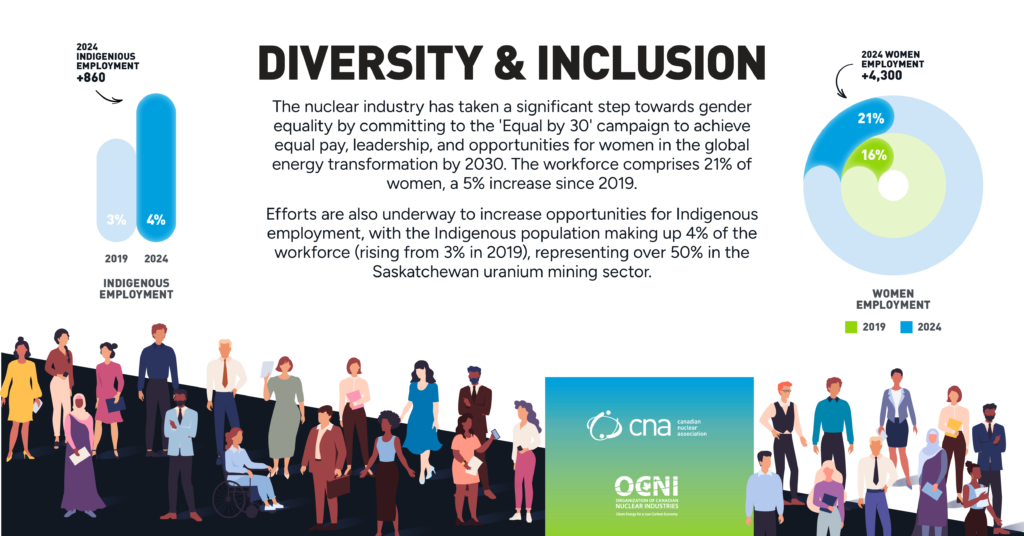Jobs and the Economy
Canada’s nuclear industry is a significant economic engine, providing high-quality jobs to skilled individuals and generating revenue for both provincial and federal governments. The industry also has excellent growth potential.
Jobs in Canada
The Canadian nuclear industry plays a significant role in Canada’s energy sector, providing clean and reliable electricity to millions of people. In addition to its environmental impact, the industry also makes a substantial contribution to the Canadian economy in terms of gross domestic product (GDP), government revenue, and employment.
The industry has experienced remarkable growth, with an annual GDP contribution exceeding $22 billion, representing a 30% increase over the past five years. This positive trend bodes well for the industry’s future and the Canadian economy.
As of 2024, the Canadian nuclear energy industry employs approximately 89,000 people, indicating a 17% increase over the last five years.
The industry is dedicated to creating a diverse and inclusive workforce and is committed to employing individuals from various age groups and genders. This not only broadens the range of skills and experiences but also fosters a sense of inclusivity and value for all employees.

Diversity of jobs in the nuclear energy sector
Canada’s four operating nuclear plants, located in Ontario and New Brunswick, employ a diverse workforce, including control-room operators, engineers, and technicians. However, the industry’s supply chain spans the country. Mining operations, primarily in Saskatchewan, require not only miners but also metallurgists, analysts, and many other professions and trades. Milling and refining operations in Ontario require precision, as do the manufacturers of parts for nuclear reactors located across the country.
The nuclear industry offers extremely high-quality jobs to Canadians, with approximately 89% falling into the high-skilled job category. The nuclear industry is one of the most heavily regulated industries in the world. Both provincial and federal governments employ a host of inspectors and health and safety specialists. These workers ensure that every aspect of operation — from mining to storing spent fuel — keeps our land and our people safe.

A large cohort of nuclear workers is nearing retirement, presenting excellent opportunities for young, skilled individuals seeking vibrant careers.

“Building a workforce that is diverse and motivated takes leadership, commitment, time and effort. It is definitely worth all that, as the staff is the single most important asset any nuclear organization has.”
– Margaret Doane, IAEA Deputy Director General and Head of the Department of Management.
The Canadian nuclear industry recognizes the importance of cultivating a workforce that is diverse, inclusive, and equitable to support nuclear development. It emphasizes the necessity for the nuclear workforce to reflect the communities it serves and engages with. This focus on diversity ensures that every individual feels valued and plays a vital role in the industry’s success.

Growth projections
Supplying 15 per cent of Canada’s electricity is the basis for stable careers in a fascinating field. But the nuclear industry does more than keep the lights on, and it has projections for an exciting future.
Increasing concern about climate change is making nuclear power more attractive than ever, both to Canada and to countries we export to. Moreover, a new generation of small modular reactors is imminent and could lead to a surge in new applications for Canada’s many remote communities and off-grid industry projects.

